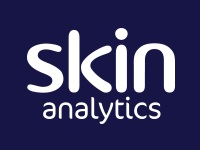In a major speech on the first 'missions' of the Industrial Strategy's Grand Challenges (21 May 2018), Prime Minister Theresa May gave strong support to the use of data, artificial intelligence and innovation – key themes of the SBRI Healthcare, which has backed over 160 companies in the digital space with more than £74million investment.
One of the first missions relating to the Grand Challenges outlined in the Government’s Industrial Strategy was unveiled as the use of data, artificial intelligence and innovation to transform the prevention, early diagnosis and treatment of chronic diseases by 2030.
SBRI Healthcare’s investment in this area has:
Supported Clinical Commissioning Groups to Manage Risk

Bering has created a mathematical model able to predict unplanned emergency hospital admissions with 91% accuracy. The model points to key factors that determine individual risk, allowing for initiation of a person-centred intervention
Improved Clinical Judgement

Brain Miner is developing Diagnosis in Dementia (DIADEM), an automated, extensible, and personalised healthcare platform for assisting the clinical diagnosis of dementia using multi-modal imaging and non-imaging data. This makes best use of currently available imaging data to create visually intuitive results for end-user clinicians
Supported Primary Care with a Virtual Waiting Room

iPLATO , which provides a mobile patient facing service to 1,400 GP surgeries and 12 million patients in the UK has developed the smartphone app, myGP(tm), which allows patients to conveniently book and cancel appointments in a virtual waiting room saving valuable time and money.
Other SBRI Healthcare funded companies operating in the AI field include:

Aidence brings together radiologists, developers, scientists and hospitals to build Veye, an intuitive and highly accurate AI solution for medical image analysis. That’s why Veye detects better, makes your work easier and saves valuable time. Veye is part of a future-proof ecosystem and works seamlessly with your existing reporting system.

Making early diagnosis of melanoma easier. Track your moles for change using your smartphone and know when you need to worry about a mole.
